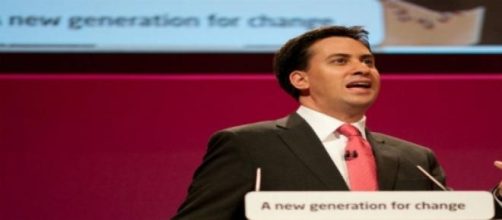The debate rages on…but who is gaining an advantage?
Thursday evening saw the 2015 Election debate continue, this time the debate was televised, but still lacked a key presence or two. Both the Conservative party and Liberal Democrats had no representation, with David Cameron and Nick Clegg absent from the podium. Instead the public watched on as the leaders of Labour, UKIP, the Scottish National Party, Plaid Cymru and the Green Party battled it out. By the end of the debate, the focus was clearly on the issues separating Ed Miliband and Nicola Sturgeon, with social media blowing up over their confrontation on stage.
What happened?
The pair clashed over several issues with the ultimate result appearing to be Miliband and Labour’s refusal to come together with the SNP to form a coalition. Nicola Sturgeon stood strong along with Plaid Cymru’s Leanne Wood and the Green Party leader Natalie Bennet insisting that they want a progressive alliance that would put an end to years of austerity in the UK. The SNP leader was particularly aggressive in her accusations of Labour, claiming the party is “scared to be bold” and highlighting that the single most important concern for all parties on the podium should be ensuring that the Tories no longer have control of government. Miliband challenged Sturgeon directly and was quick to state that he would not entertain a coalition government with the SNP and intended to win a majority.
The Labour Party leader argued that the SNP’s ultimate goal remains independence and that their plan sees a second Scottish referendum within five years. Miliband insisted that he could not and would not see the United Kingdom be broken up and therefore would not form a coalition.
This refusal was pounced upon by Sturgeon who accused Labour of not focusing on the task at hand, which is to get the Tories out of government. The SNP leader ended her tirade against Miliband by saying that “British people will never forgive” Miliband for not taking an opportunity to throw the Conservatives out of Parliament.
Who came out on top?
It’s hard to argue that any one party triumphed in the wake of the debate, but there are certainly some very clear characterisations being drawn.
Ed Miliband looked to be using the debate in order to demonstrate his ability to govern as prime minister by balancing out the demands made by the other parties on the podium. Furthermore, the debate gave him the opportunity to clearly show his lack of desire to work with the SNP, something he had so far struggled to do. However, in his fight to separate his party from the SNP, something more important became apparent: Scotland and the SNP will play a far more significant role in the upcoming election than most might have anticipated because every news element the day after has focused on the Ed vs. Nicola fight.
Ed’s challenge to Cameron
The evening ended with Miliband directly challenging David Cameron to come out and debate him one-on-one.
The prime minister has so far refused to do so, and may continue along this line given the events Thursday evening’s televised debate. The battle between Miliband and Sturgeon is the perfect way for the Tories to present a weak and divided opposition going into the final two weeks before the May 7th election. No doubt the Conservatives will take pleasure from the apparent disunity and instil the fear of what a Labour government so heavily dependent upon the SNP might look like. All the while, the Conservative will be hoping to edge closer to the ultimate objective: five more years in office.

